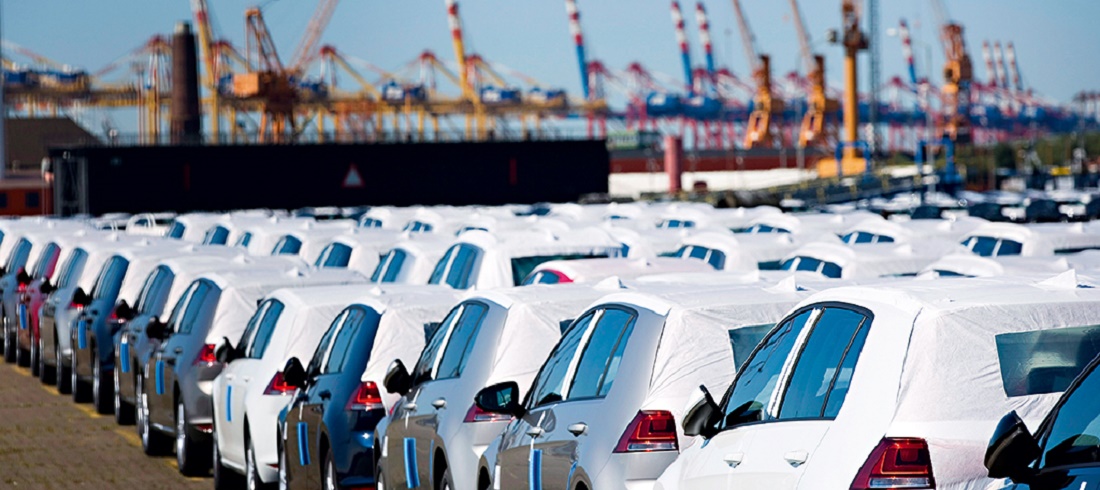
Brazil’s vehicle exports fall 37% in the first semester
Jul, 02, 2019 Posted by datamarnewsWeek 201928
Brazil’s vehicle exports performance is the main culprit in the country’s fall in export statistics in 2019. The information provided by Iedi – The Industrial Development Study Institute – shows that passenger automobile shipments fell from US$3.04bn to US$1.95bn from January to June 2018 for the same period of this year.
The absolute decrease of US$1.08bn represents 37% of the US$2.9bn decline in total exports in the first half of the year. Brazilian shipments fell over the same period from US$113.8bn to US$110.9bn (1.8% decline from the daily average, compared to the same period a year ago).
Imports in the same period totaled US$83.76bn (up 0.8%).
According to Rafael Cagnin, an Iedi economist, the Argentine crisis has a significant influence on the decline in Brazilian automobile exports. “But the decline in Brazilian exports of manufactured goods, despite being pulled by the automotive sector, is widespread in several sectors with a more diversified profile,” he says.
Trade balance
According to an analysis released by Iedi, the level of economic activity has been showing signs of slowing in the first half of 2019, making the recovery of the economy, which was not robust, to begin with, become even weaker.
Imports, which respond to the growth of the national economy, registered US$13bn in June 2019, practically the same level as a year ago if we consider the average per working day (+0.5% before June/18). More than a regular performance, this was the pattern of the first half of the year.
After having grown +20% in 2018 as a whole, total imports were stagnant (0%) in the first half of 2019 compared to the same period last year, totaling US$83.7bn. Once adjusted for business days, the result improves to +0.8%, but the overall stability remains.
The worst result was the import of consumer goods, which fell -7.1% in Jan-Jun/19; a reality different from that of the first half of 2018 when it grew at a rate of +16.5%. The import of fuels and lubricants was also negative: -1.7% compared to the same period of the previous year.
Foreign purchases of intermediate goods, which feed domestic production of many products, did not fall but suffered a significant slowdown. It had grown +12.1% in 2018 as a whole, and now, in the first half of 2019, it only increased by +1.1%. Only capital goods (+4.7%) managed to show a better dynamism, but in this case, the series has been hugely influenced since last year by operations with oil platforms.
The loss of momentum from imports could have worked to at least stop the deterioration of our trade balance surplus, but this was not the case, as shown by the following interannual variations.
- Exports: +5.6% in Jan-Jun/18; +14.3% in Jul-Dec/18; and -2.5% in Jan-Jun/19;
- Imports: +17.2%; +22.9%; and 0%, respectively;
- Trade Balance Surplus: -17.4%; -7.9%; and -9.3%, respectively.
Tensions in international trade and especially the crisis of the Argentine economy have significantly damaged the Brazilian export performance. In June, exports fell -1.7% on average per working day compared to June/18, registering a total of US$18bn. In the first semester of 2019, foreign sales of US$110.9bn implied a reduction of -2.4% compared to the same period of last year, leading to a drop of -9.3% in the total trade surplus.
It was the manufactured and semi-manufactured goods that were behind this negative performance of exports. In the first case, the decline reached -5.5% compared to Jan-Jun/18 and, in the second case, -0.4%. Commodity shipments continued to grow in the first half of 2019, but at a much slower pace than they had been: they were only +4.3%, after rising +17.6% in 2018 as a whole.
In addition to automobiles, other manufacturers with significant losses were aircraft, oil extraction platforms, auto parts, and cargo vehicles.
Sources: Value and Iedi
-
Automotive
May, 21, 2019
0
Brazilian farmers struggle to operate farm machinery at full capacity
-
Automotive
Feb, 11, 2019
0
Vehicle production falls in both Brazil and Argentina
-
Automotive
Jun, 08, 2019
0
Anfavea reports 3.1% increase in auto sales in May
-
Automotive
Aug, 07, 2019
0
Brazil vehicle production rises in July 2019

